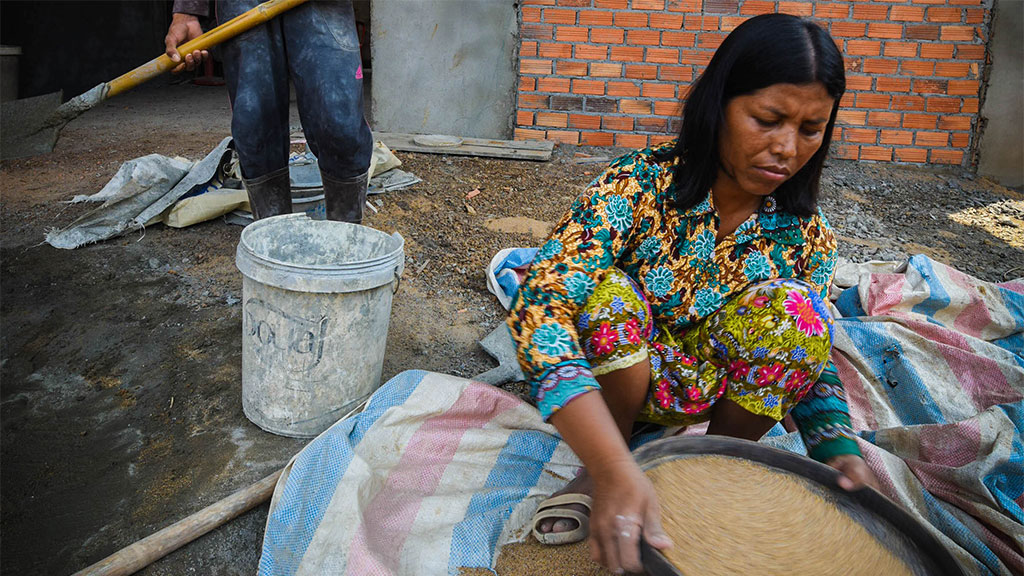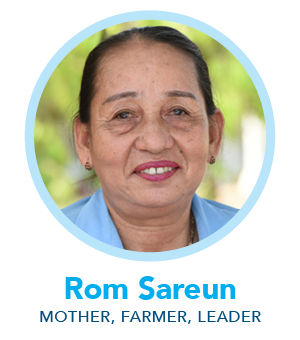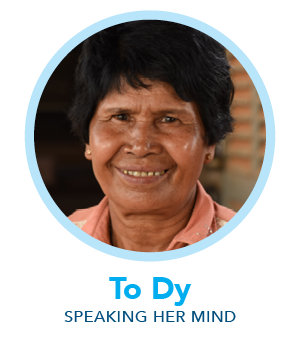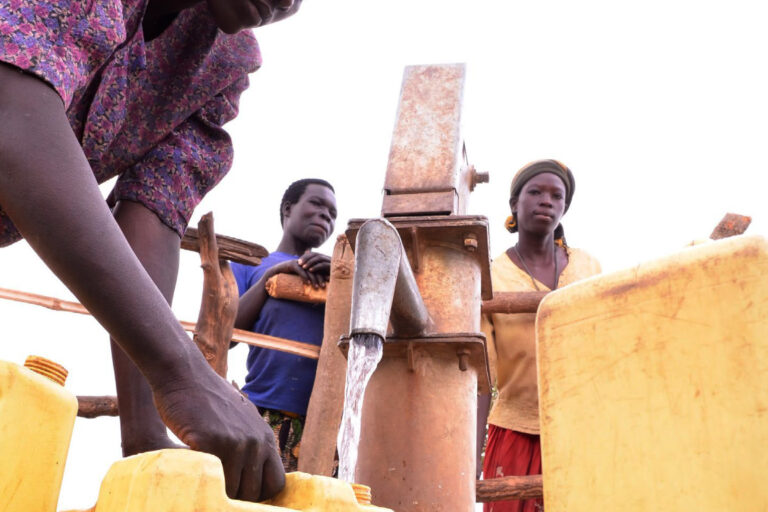Putting New Skills to Use for Her Community
After training with the USAID-funded Sustainable Water Partnership, Sin Phally is lending her voice to efforts to enhance water security.
A bright afternoon sun blankets the village of Chanlahorng as visitors approach a cluster of wood-frame houses surroundinga dirt courtyard. Wearing a black T-shirt and a yellow patterned skirt, Sin Phally sets out a tea pot, drinking glasses and bottles of water for her guests. Then Phally, a rice farmer and mother of two, begins to talk about how farming has changed during her lifetime.
When she was a young girl, Phally’s family weeded their rice fields by hand. When they grew thirsty, they simply stooped down and cupped the standing water into their mouths for a drink. But in recent years that has changed. Farmers now use pesticides to weed their crops, which has seriously degraded the quality of water. Instead, Phally now takes bottles of water with her each day to brave the dry-season heat.

Since last year, Phally has served on a working group supported by the USAID-funded Sustainable Water Partnership (SWP) to address water pollution in central Cambodia’s Stung Chinit River Watershed. As one of 17 women who took part in training sessions facilitated by SWP, Phally learned about the effects of this pollution, as well as other skills such as budgeting and financial management, and strategies to peacefully resolve conflicts over water resources.
Phally believes that it is essential that women be involved in decision-making over water resources as communities within the watershed attempt to address the challenge of increasing water insecurity.
“It’s important because women use more water than men,” she says. “They should know about the issues and be involved with them.”

Unlike some of the female participants who have taken part in SWP’s efforts to enhance water security, Phally did not previously hold a leadership role in her community prior to taking part in the working group. But through the training she received from SWP, she has learned skills that she now uses to benefit her community.
“They trained me how to be better and to have a plan for everything,” she said.
Newly equipped with budgeting skills, Phally was recently elected as finance chair of the local farmer water users committee. She is now focused on expanding access to water for local farmers in her community. Many of the fields near her village are too far away from the nearest canal, which help distribute water during Cambodia’s six-month dry season. Phally hopes that the community and government authorities can devise a way to build a new smaller canal to expand access for farmers. In the meantime, she’s putting to use the conflict-resolution skills she learned during the SWP training to mediate disputes over water, lending her voice and experience to help her community tackle the challenges of the future.
This article is part of a series about the roles women are playing in the USAID-funded Sustainable Water Partnership’s efforts to enhance water security in Cambodia. Click below for more of their stories.


Related Projects

